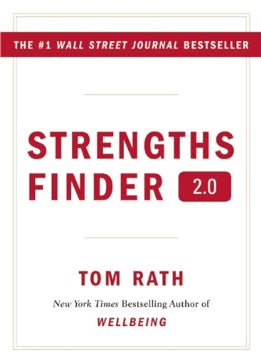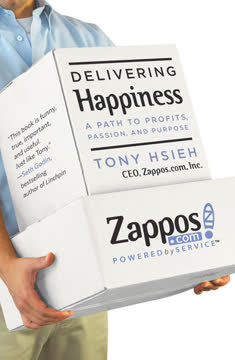つの重要なポイント
1. 必要になる前に関係を築く
「本当のネットワーキングの通貨は、貪欲ではなく寛大さである。」
積極的な関係構築。 成功するネットワーキングは、名刺を集めたり、何かが必要なときだけに接触することではありません。時間をかけて真の関係を育むことです。他人に投資することで、助けが必要になる前に信頼と善意の強固な基盤を築くことができます。
長期的な視点。 ネットワーキングには長期的な視点で取り組みましょう。他人を助け、彼らの生活に価値を加える方法に焦点を当てます。このアプローチはより本物に感じられ、必要なときに他人が助けてくれる可能性が高まります。最も強力なネットワークは、相互利益と互恵に基づいて構築されることを忘れないでください。
2. 多様なネットワークを構築する
「あなたのネットワークは広く深くあるべきだ。」
快適ゾーンを超えて広げる。 ネットワークを自分の業界や似た背景を持つ人々に限定しないでください。多様なネットワークは、異なる視点、機会、リソースに触れることができます。さまざまな分野、年齢層、文化の人々とつながりを求めましょう。
質と量。 大きなネットワークを持つことは重要ですが、意味のある関係を築くことにも焦点を当てましょう。以下のバランスを目指します:
- 弱い結びつき:新しいサークルに紹介してくれる知人
- 強い結びつき:サポートと協力を提供する親しい関係
- コネクター:異なるグループを自然に結びつける人々
3. 寛大で他人に価値を提供する
「助ける人が多ければ多いほど、助けてもらえる人も多くなり、他人を助ける助けも増える。」
与える心を育む。 ネットワーキングに取り組む際には、「どうすれば助けられるか?」という質問を持ちましょう。「自分に何が得られるか?」ではありません。常に他人に価値を提供することで、信頼できるリソースとなり、社会的資本を増やすことができます。
価値を提供する方法:
- 知識と専門知識を共有する
- 知り合うことで利益を得られる人々を紹介する
- 困難な時期にサポートを提供する
- 他人の成功を祝う
- 適切な場合に建設的なフィードバックを提供する
寛大さは善意を築き、予期しない機会や相互支援につながることがよくあります。
4. 意味のある印象的な交流をする
「人々は物語を覚えている。人間の脳は事実や箇条書きではなく、物語を覚えるようにできている。」
物語の技術を習得する。 新しい人と会ったり、連絡を再開する際には、あなたの経験、価値観、目標を示す魅力的な物語を共有しましょう。個人的な逸話は、あなたをより親しみやすく、記憶に残るものにします。
積極的な傾聴。 他人に真の関心を示すために:
- 思慮深い質問をする
- 前回の会話の詳細を覚えておく
- 共有された情報に基づいてフォローアップする
- 関連する洞察やリソースを提供する
各交流を大切にすることで、ポジティブな印象を残し、ネットワークのつながりを強化します。
5. ソーシャルメディアとテクノロジーを賢く活用する
「ソーシャルメディアは参入障壁を取り除き、ほぼ誰とでもつながることを可能にする。」
戦略的なオンラインプレゼンス。 ソーシャルメディアプラットフォームを活用して:
- 価値あるコンテンツを共有する
- 業界のリーダーと交流する
- 専門知識をアピールする
- ネットワークの活動を把握する
オンラインとオフラインのバランス。 テクノロジーは前例のないネットワーキングの機会を提供しますが、対面の交流を軽視しないでください。オンラインのつながりを、より深い関係を築くための対面の会議の出発点として活用しましょう。
あなたの個人ブランドとネットワーキングの目標に一致するプロフェッショナルなオンラインペルソナを維持することを忘れないでください。
6. スモールトークとフォローアップの技術を習得する
「スモールトークは私たちが行う最大の会話である。」
会話のきっかけを準備する。 イベントや会議に参加する前に、現在の出来事、業界のトレンド、共通の関心事を調査して、魅力的な会話を促進します。深い議論を促すオープンエンドの質問を練習しましょう。
効果的なフォローアップ:
- 意味のある交流の後に個別の感謝のメッセージを送る
- 会話で言及された関連する記事やリソースを共有する
- パーソナライズされたメッセージでプロフェッショナルなソーシャルネットワークでつながる
- 会話を続けるためのフォローアップの会議や電話をスケジュールする
一貫した思慮深いフォローアップは、短い出会いを持続的なつながりに変え、関係構築へのコミットメントを示します。
7. ネットワーク内での与えることと求めることのバランスを取る
「あなたが望むことを具体的にするほど、人々があなたを助けるのが容易になる。」
助けを求めるための躊躇を克服する。 多くの人は助けを求めることを恐れますが、ほとんどの人は助けることを楽しんでいます。サポートが必要なときは、リクエストを明確かつ具体的にしましょう。
互恵の実践:
- 他人を助けた方法を記録する
- 他人が助けてくれたときに返礼する準備をする
- 助けを求める際には、過去の交流や共通のつながりを参照する
- 受けた支援に対して真の感謝を表す
与えることと受け取ることのバランスを保つことで、相互支援と長期的な価値に基づいたネットワークを築くことができます。
8. 個人ブランドと評判を育む
「あなたがしようとしていることでは評判を築くことはできない。」
あなたの独自の価値を定義する。 あなたの強み、情熱、ネットワークに提供する具体的な価値を特定します。あなたが誰であり、何を大切にしているかを伝える明確な個人ブランドを開発しましょう。
一貫性が鍵。 あなたの行動、コミュニケーション、オンラインプレゼンスを個人ブランドに一致させます。以下の点で知られるようにしましょう:
- 信頼性:コミットメントを守る
- 専門知識:知識を継続的に開発し共有する
- 誠実さ:すべての交流で高い倫理基準を維持する
- 本物さ:関係とコミュニケーションにおいて真実である
強力な個人ブランドはあなたを記憶に残りやすくし、他人が機会やコラボレーションを求めてあなたを探す可能性を高めます。
9. 戦略的な社交イベントを主催し参加する
「短期的な痛みを耐え忍ぶ覚悟がなければ、長期的な利益を得ることはできない。」
コネクターになる。 イベントを主催することで、人々を集め、ネットワーク内で価値あるノードとしての地位を確立できます。以下を考慮してください:
- 多様なゲストを招いたディナーパーティー
- 業界のミートアップやワークショップ
- バーチャルラウンドテーブルディスカッション
- あなたの価値観に一致するチャリティイベント
選択的なイベント参加。 目標に一致し、関連するコンタクトと出会う機会を提供するイベントを選びましょう。参加前に:
- 参加者やスピーカーを調査する
- 具体的なネットワーキング目標を設定する
- 話題や質問を準備する
戦略的に社交イベントをキュレーションし参加することで、ネットワーキングの努力を最大化し、価値あるつながりを作り出します。
10. ネットワーキングの恐怖と言い訳を克服する
「選択は成功と失敗の間ではなく、リスクを選び偉大さを目指すか、何もリスクを取らず平凡さを確実にするかの間にある。」
ネットワーキングの不安を再構築する。 ネットワーキングを困難なタスクとしてではなく、学び、成長し、他人を助ける機会として捉えましょう。多くの人がネットワーキングの場面で同様に緊張していることを覚えておいてください。
恐怖を克服するための実践的なステップ:
- 小さく始める:低圧の状況で練習する
- 達成可能な目標を設定する:イベントごとに1つか2つの意味のあるつながりを目指す
- 他人に焦点を当てる:自分の不快感から他人を助ける方法に注意を向ける
- 拒絶を受け入れる:「ノー」を学習経験とし、将来の「イエス」へのステップと見なす
- 継続的に改善する:交流を振り返り、アプローチを調整する
ネットワーキングの恐怖に立ち向かうことで、個人的およびプロフェッショナルな成長のための無数の機会に自分を開くことができます。
最終更新日:
FAQ
What's Never Eat Alone about?
- Focus on Relationships: Never Eat Alone by Keith Ferrazzi emphasizes the importance of building and nurturing relationships for personal and professional success. It argues that success is not just about individual talent but about the connections you make and how you leverage them.
- Networking Philosophy: The book introduces a philosophy of networking based on generosity, authenticity, and mutual benefit. Ferrazzi believes that by helping others, you create a network that will support you in return.
- Practical Strategies: It provides practical strategies and actionable advice for effective networking, including how to approach cold calls, manage gatekeepers, and follow up after meetings.
Why should I read Never Eat Alone?
- Transformative Networking Approach: The book offers a transformative approach to networking that can change how you view relationships in your career. It teaches that networking is not just about collecting contacts but about forming genuine connections.
- Real-Life Examples: Ferrazzi shares real-life stories and examples that illustrate the principles he advocates, making the advice relatable and actionable.
- Timeless Principles: The principles outlined are timeless and applicable across various fields and industries, making it a valuable read for anyone looking to enhance their professional relationships.
What are the key takeaways of Never Eat Alone?
- Generosity is Key: One of the main takeaways is that “the key to success in one word: generosity.” This principle underlines the importance of giving without expecting anything in return.
- Build Before You Need: Ferrazzi emphasizes the importance of building your network before you need it, ensuring you have a support system in place when challenges arise.
- Follow Up or Fail: The book stresses the importance of following up after meetings, as “follow-up is the key to success in any field.”
What specific networking strategies does Never Eat Alone recommend?
- Relationship Action Plan: Ferrazzi introduces the concept of a Relationship Action Plan (RAP), which helps you identify your goals and the people who can help you achieve them.
- Warming Cold Calls: The book advises against cold calling and instead suggests warming up your calls by finding mutual connections or references.
- Managing Gatekeepers: Ferrazzi emphasizes treating gatekeepers as allies rather than obstacles, which can open doors to decision-makers.
What does Ferrazzi mean by "Never Eat Alone"?
- Networking Over Meals: The phrase encapsulates the idea that meals are prime opportunities for networking. Ferrazzi encourages inviting colleagues, mentors, and potential connections to share meals.
- Building Relationships: Eating together creates a relaxed environment conducive to building relationships, leading to more meaningful interactions than formal meetings.
- Creating Opportunities: By consistently inviting others to join you for meals, you create opportunities to connect and collaborate.
What is the concept of "social arbitrage" in Never Eat Alone?
- Creating Connections: Social arbitrage involves identifying opportunities to connect people who can benefit from knowing each other, leading to mutually beneficial relationships.
- Proactive Networking: Ferrazzi advises taking the initiative to offer assistance, enhancing your reputation as a connector.
- Building Indispensability: By becoming a resource for others, you position yourself as an essential part of their network, leading to increased opportunities.
What does "pinging" mean in the context of Never Eat Alone?
- Regular Check-Ins: Pinging refers to the practice of staying in touch with your network through casual greetings or updates, keeping relationships alive and relevant.
- Frequency Matters: Ferrazzi suggests maintaining relationships requires regular communication, ideally at least once a month.
- Personal Touch: The effectiveness of pinging increases when it’s personalized, such as remembering birthdays or significant events.
How does Never Eat Alone address the concept of social capital?
- Definition of Social Capital: Ferrazzi defines social capital as “the information, expertise, trust, and total value that exist in the relationships you have.”
- Building Social Capital: The book emphasizes that building social capital requires active engagement and investment in relationships.
- Impact on Success: Ferrazzi argues that social capital is a key determinant of success, stating, “Your network is your destiny.”
What role does vulnerability play in networking according to Never Eat Alone?
- Authenticity Builds Trust: Ferrazzi argues that being vulnerable and open about your challenges can foster deeper connections.
- Encourages Reciprocity: When you show vulnerability, it invites others to do the same, creating a safe space for honest communication.
- Humanizes Connections: Vulnerability makes you relatable and approachable, enhancing your networking efforts.
What are some common networking mistakes to avoid as highlighted in Never Eat Alone?
- Keeping Score: Ferrazzi warns against the mentality of keeping score in relationships, which can lead to transactional rather than genuine connections.
- Being a Networking Jerk: The book describes the “networking jerk” as someone who is overly aggressive and insincere in their networking efforts.
- Neglecting Follow-Up: Failing to follow up after meeting someone is a common mistake that can lead to lost opportunities.
How does Never Eat Alone suggest I find mentors?
- Identify Potential Mentors: Look for individuals who have achieved what you aspire to and who are willing to share their knowledge.
- Be Proactive: Reach out to potential mentors with specific questions or requests for advice, showing genuine interest in their work.
- Build a Relationship: Mentorship is a two-way street; be prepared to offer value in return, such as assistance on projects.
What are the best quotes from Never Eat Alone and what do they mean?
- “You can be more successful in two months by becoming really interested in other people’s success than you can in two years trying to get other people interested in your own success.”: This quote highlights the importance of focusing on others, which can lead to stronger relationships.
- “Real power comes from being indispensable.”: Ferrazzi emphasizes that true influence is gained by being a valuable resource to others.
- “The best sort of connecting occurs when you can bring together two people from entirely different worlds.”: This underscores the value of diversity in networking, as connecting people from different backgrounds can lead to innovative ideas.
レビュー
本書『Never Eat Alone』は賛否両論の評価を受けている。ネットワーキングのアドバイスを称賛する声もあれば、自己宣伝的なトーンを批判する声もある。肯定的なレビューでは、人間関係の構築や社交範囲の拡大に関する実践的なヒントが評価されている。一方で、批判者は本書をエリート主義的で繰り返しが多いと指摘する。多くの読者はフェラッツィの個人的な逸話を過剰と感じるが、価値ある例として捉える人もいる。本書が強調する真のつながりと「受け取る前に与える」という理念は読者に共鳴している。全体として、欠点はあるものの、ネットワーキングスキルを向上させたい人にとって有用とされている。
Similar Books



![Zero to One, Start Now Get Perfect Later, Shoe Dog A Memoir by the Creator of Nike, [Hardcover] Crushing It 4 Books Collection Set Summary](https://images.sobrief.com/social/cover_zero-to-one-start-now-get-perfect-later-shoe-dog-a-memoir-by-the-creator-of-nike-hardcover-crushing-it-4-books-collection-set_360px_1747184952.jpg)










